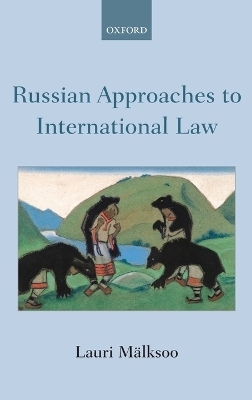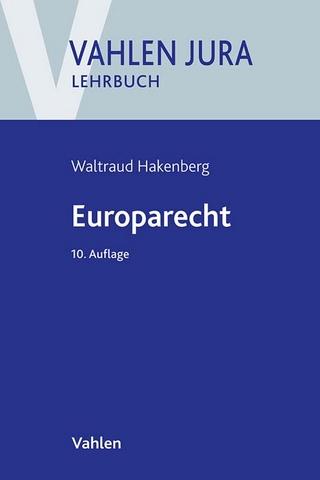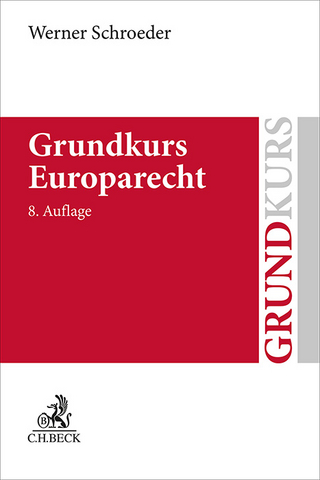
Russian Approaches to International Law
Seiten
2015
Oxford University Press (Verlag)
978-0-19-872304-2 (ISBN)
Oxford University Press (Verlag)
978-0-19-872304-2 (ISBN)
Russian Approaches to International Law looks at how Russia has developed its understanding of international law in the post-Soviet period, examining the language of international law in post-Soviet Russia and Russian practice on the use of military force, human rights, and investor-state arbitration.
This is an open access title available under the terms of a CC BY-NC-ND 4.0 International licence. It is free to read on the Oxford Academic platform and offered as a free PDF download from OUP and selected open access locations.
This book addresses a simple question: how do Russians understand international law? Is it the same understanding as in the West or is it in some ways different and if so, why?
It answers these questions by drawing on from three different yet closely interconnected perspectives: history, theory, and recent state practice. The work uses comparative international law as starting point and argues that in order to understand post-Soviet Russia's state and scholarly approaches to international law, one should take into account the history of ideas in Russia. To an extent, Russian understandings of international law differ from what is considered the mainstream in the West.
One specific feature of this book is that it goes inside the language of international law as it is spoken and discussed in post-Soviet Russia, especially the scholarly literature in the Russian language, and relates this literature to the history of international law as discipline in Russia. Recent state practice such as the annexation of Crimea in 2014, Russia's record in the UN Security Council, the jurisprudence of the European Court of Human Rights, prominent cases in investor-state arbitration, and the creation of the Eurasian Economic Union are laid out and discussed in the context of increasingly popular 'civilizational' ideas, the claim that Russia is a unique civilization and therefore not part of the West. The implications of this claim for the future of international law, its universality, and regionalism are discussed.
This is an open access title available under the terms of a CC BY-NC-ND 4.0 International licence. It is free to read on the Oxford Academic platform and offered as a free PDF download from OUP and selected open access locations.
This book addresses a simple question: how do Russians understand international law? Is it the same understanding as in the West or is it in some ways different and if so, why?
It answers these questions by drawing on from three different yet closely interconnected perspectives: history, theory, and recent state practice. The work uses comparative international law as starting point and argues that in order to understand post-Soviet Russia's state and scholarly approaches to international law, one should take into account the history of ideas in Russia. To an extent, Russian understandings of international law differ from what is considered the mainstream in the West.
One specific feature of this book is that it goes inside the language of international law as it is spoken and discussed in post-Soviet Russia, especially the scholarly literature in the Russian language, and relates this literature to the history of international law as discipline in Russia. Recent state practice such as the annexation of Crimea in 2014, Russia's record in the UN Security Council, the jurisprudence of the European Court of Human Rights, prominent cases in investor-state arbitration, and the creation of the Eurasian Economic Union are laid out and discussed in the context of increasingly popular 'civilizational' ideas, the claim that Russia is a unique civilization and therefore not part of the West. The implications of this claim for the future of international law, its universality, and regionalism are discussed.
Lauri Mälksoo is Professor of International Law at the University of Tartu in Estonia and the Director of the Estonian Foreign Policy Institute, a think tank in Tallinn. In 2013, he was elected member of the Estonian Academy of Sciences and is currently the Society's youngest member.
I. Introductory Themes ; II. The History of International Legal Scholarship in Russia ; III. Theory of International Law in Contemporary Russia ; IV. Patterns of Post-Soviet Russian State Practice in International Law
| Erscheint lt. Verlag | 19.3.2015 |
|---|---|
| Verlagsort | Oxford |
| Sprache | englisch |
| Maße | 163 x 240 mm |
| Gewicht | 508 g |
| Themenwelt | Recht / Steuern ► EU / Internationales Recht |
| ISBN-10 | 0-19-872304-0 / 0198723040 |
| ISBN-13 | 978-0-19-872304-2 / 9780198723042 |
| Zustand | Neuware |
| Haben Sie eine Frage zum Produkt? |
Mehr entdecken
aus dem Bereich
aus dem Bereich
Vertrag über die Europäische Union, Vertrag über die Arbeitsweise der …
Buch | Softcover (2024)
dtv Verlagsgesellschaft
CHF 22,25


